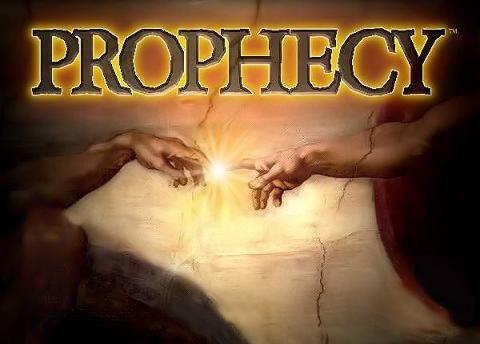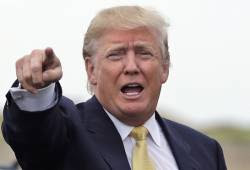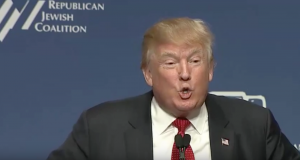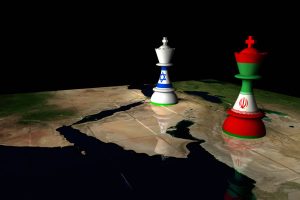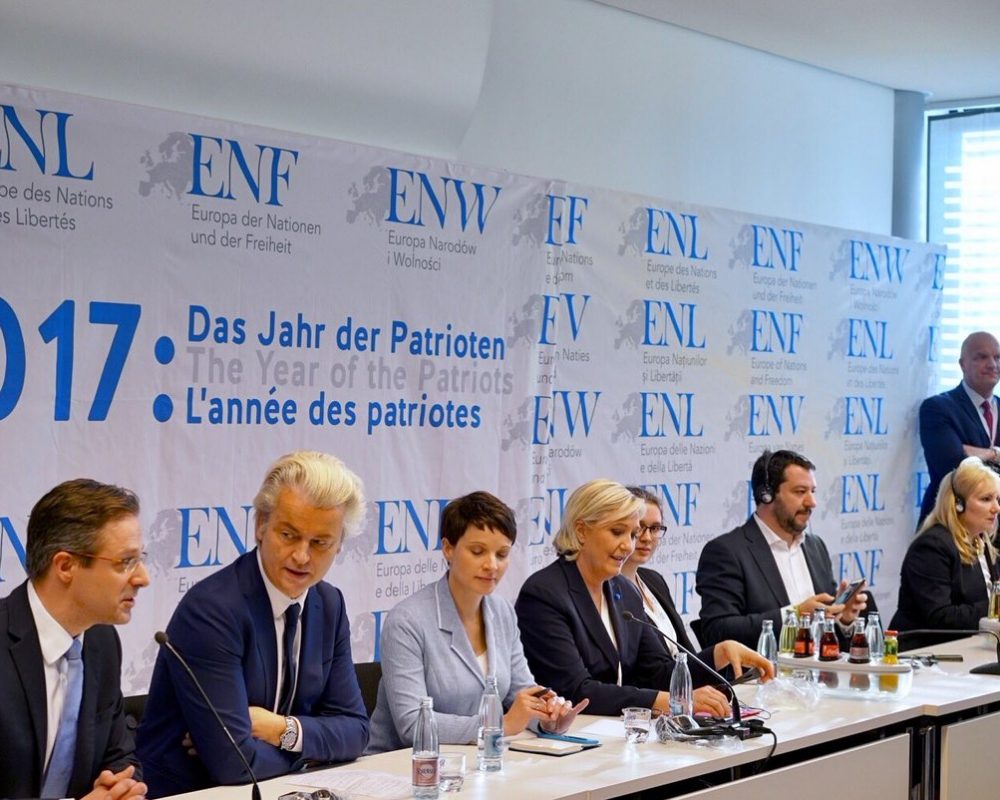
- “The genie will not go back into the bottle again, whether you like it or not.” — Geert Wilders, MP and head of the Party for Freedom, the Netherlands.A growing number of Europeans are rebelling against decades of government-imposed multiculturalism, politically correct speech codes and mass migration from the Muslim world.
-
- Europe’s establishment parties, far from addressing the concerns of ordinary voters, have tried to silence dissent by branding naysayers as xenophobes, Islamophobes and neo-Nazis.
- “In many respects, France and Germany are proving they do not understand the meaning of Brexit. They are reflexively, almost religiously, following exactly the path that has provoked the EU’s current existential crisis.” — Ambassador John R. Bolton, former U.S. ambassador to the United Nations.
- “There is a genuine feeling that Trump taking over the White House is part of a bigger, global movement. Our critics, looking at Trump’s candidacy and his speech yesterday, would call it the rise of populism. I would say it’s simply a return to nation state democracy and proper values…. This is a genuine political revolution.” — Nigel Farage, former head of Britain’s UKIP party, who led the effort for the United Kingdom to leave the EU.
- “This disruption is fruitful. The taboos of the last few years are now fully on the agenda: illegal immigration, Islam, the nonsense of open borders, the dysfunctional EU, the free movement of people, jobs, law and order. Trump’s predecessors did not want to talk about it, but the majority of voters did. This is democracy.” — Roger Köppel, editor-in-chief of Die Weltwoche, Switzerland.
Inspired by the inauguration of U.S. President Donald J. Trump, the leaders of Europe’s main anti-establishment parties have held a pan-European rally aimed at coordinating a political strategy to mobilize potentially millions of disillusioned voters in upcoming elections in Germany, the Netherlands and France.
Appearing together in public for the first time, Marine Le Pen, leader of the French National Front, Frauke Petry, leader of the Alternative for Germany (AfD), Geert Wilders, leader of the Dutch Party for Freedom (PVV), Matteo Salvini, leader of Italy’s Northern League and Harald Vilimsky of Austria’s Freedom Party gathered on January 21 at a rally in Koblenz, Germany, where they called on European voters to participate in a “patriotic spring” to topple the European Union, reassert national sovereignty and secure national borders.

The leaders of Europe’s main anti-establishment parties appearing together in public for the first time, on January 21 in Koblenz, Germany. (Image source: Marine Le Pen/Twitter)
|
The two-hour rally was held under the banner of the Europe of Nations and Freedom (ENF), a group established in June 2015 by Members of the European Parliament from nine counties to oppose European federalism and the transfer of political power from voters to unelected bureaucrats in Brussels, the de facto capital of the European Union.
Referring to the June 2016 decision by British voters to leave the European Union, and the rise of President Donald Trump in the United States, Le Pen said:
“We are living through the end of one world, and the birth of another. We are experiencing the return of nation-states. 2016 was the year the Anglo-Saxon world woke up. 2017, I am sure, will be the year in which the peoples of the European continent rise up.”
Wilders added:
“The world is changing. America is changing. Europe is changing. It started last year with Brexit, yesterday there was Trump and today the freedom-loving parties gathered in Koblenz are making a stand. The genie will not go back into the bottle again, whether you like it or not. The people of the West are awakening. They are throwing off the yoke of political correctness.”
Polls indicate that the political sea change engulfing the United States is fueling support for anti-establishment parties in Europe. In addition to anger over eroding sovereignty, a growing number of Europeans are rebelling against decades of government-imposed multiculturalism, politically correct speech codes and mass migration from the Muslim world.
In France, a new Ipsos poll for Le Monde shows that Marine Le Pen is now poised to win the first round of the French presidential election set for April 23, 2017. Le Pen has between 25% and 26% support among likely voters, compared to 23% and 25% for François Fillon of the center-right Republicans party. In December 2016, Fillon held a three-point lead over Le Pen.
In the Netherlands, Geert Wilders is now leading polls ahead of the general election scheduled for March 15, 2017. The PVV has the support of between 29% and 33% of the electorate. By contrast, support for the ruling People’s Party for Freedom and Democracy (VVD) has fallen to between 23% and 27%.
In Germany, the anti-immigration Alternative for Germany party (AfD) has become the third-largest party the country, with support at around 15% percent. The AfD had gained representation in ten of Germany’s 16 state parliaments, and the party hopes to win seats in the Federal Parliament (Bundestag) for the first time in national elections set for September 24, 2017.
Europe’s establishment parties, far from addressing the concerns of ordinary voters, have tried to silence dissent by branding naysayers as xenophobes, Islamophobes and neo-Nazis.
In Germany, for example, Vice Chancellor Sigmar Gabriel, in an underhanded effort to silence criticism of the government’s open door migration policy, called for German intelligence to begin monitoring the AfD.
The German Interior Ministry is now proposing to establish a “Defense Center against Disinformation” (Abwehrzentrum gegen Desinformation) to combat “fake news.” Critics have described the proposed center as a “censorship monster” aimed at silencing dissenting opinions.
Enter Trump. If sufficient numbers of European voters are inspired by the political transformation taking place in the United States, the balance of European political power may begin to shift in favor of the anti-establishment parties. European political and media elites will therefore surely view Trump as a threat to the Europe’s established political order.
In a January 16 interview with the Times of London and Germany’s Bild, Trump said he believed that Brexit is “going to end up being a great thing.” He added that German Chancellor Angela Merkel made an “utterly catastrophic mistake by letting all these illegals into the country.”
In the same interview, Trump said that the NATO alliance “is very important to me” but he called it “obsolete” for failing to contain the threat posed to the West by Islamic terrorism. He also complained that some countries “don’t pay what they should pay.” Of the 28 countries in the alliance, only five — Britain, Estonia, Greece, Poland and the United States — meet the target of spending at least 2% of their GDP on defense.
European commentators roundly criticized Trump for his comments and some accused the United States of being an “unreliable partner.” European leaders repeated calls for a pan-European Army, a long-held goal of European federalists, which would entail an unprecedented transfer of sovereignty from European nation states to the European Union.
Gatestone Institute Chairman Ambassador John R. Bolton, has provided much-needed context to the debate over NATO. In a recent article for the Boston Globe, he wrote:
“NATO has taken intense criticism this year from Donald Trump, evoking howls of outrage from foreign-policy establishment worthies. The worthies know, however, that Trump is simply using his bullhorn to say what they themselves say more quietly: NATO’s decision-making is often sclerotic; its mission has not been adequately redefined after the Cold War; and too many members haven’t carried their weight financially or militarily for long years…. Trump has emphasized that his complaints are intended to encourage debate about improving and strengthening NATO, not sundering it. The debate is well worth having.”
Bolton added:
“In many respects, France and Germany are proving they do not understand the meaning of Brexit. They are reflexively, almost religiously, following exactly the path that has provoked the EU’s current existential crisis: every failure of closer integration by the ‘European project’ leads only to calls for more integration. Whether it is establishing a currency without a government; pledging military capabilities that collectively the EU never achieves; or pretending to an EU role in world affairs that no one outside of Brussels takes seriously, ‘more Europe’ is always the answer.”
European Reactions to President Trump’s Inauguration
Trump’s presidential inauguration speech was greeted with formal politeness by European leaders — most of whom will have to work with the new leader of the free world — and with unbridled derision by European commentators and media elites — many of whom appear to be in denial about the anti-establishment fervor sweeping the United States and Europe.
Much of the European commentary about Trump has consisted of name-calling and anti-Americanism. A handful of European analysts, however, have called for introspection and self-criticism.
What follows is a brief selection of European commentary on Trump’s inauguration:
In Britain, reactions to Trump were evenly divided between those who do and do not support British membership in the European Union. Prime Minister Theresa May said:
“From our conversations to date, I know we are both committed to advancing the special relationship between our two countries and working together for the prosperity and security of people on both sides of the Atlantic.”
Foreign Secretary Boris Johnson wrote:
“I think that the new president has made it very clear that he wants to put Britain at the front of the line for a new trade deal and obviously that’s extremely exciting and important.”
Nigel Farage, the politician who led the effort for the United Kingdom to leave the EU, was one of the few Europeans to understand the magnitude of Trump’s rise. He wrote:
“There is a genuine feeling that Trump taking over the White House is part of a bigger, global movement. Our critics, looking at Trump’s candidacy and his speech yesterday, would call it the rise of populism. I would say it’s simply a return to nation state democracy and proper values. For this inauguration is not just a change from the 44th President to the 45th President of the United States. This is a genuine political revolution.”
In France, President François Hollande advised Trump to stay out of European affairs — this a few days after the French government tried to impose a “two-state solution” on Israel. He said: “Europe will be ready to pursue transatlantic cooperation, but it will be based on its interests and values. It does not need outside advice to tell it what to do.”
Marine Le Pen said: “Clearly, the victory of Donald Trump is another step toward the emergence of a new world, whose vocation is to replace an old order.”
Jean-Marie Colombani, the former editor-in-chief of Le Monde, articulated Europe’s geopolitical predicament, which is the direct consequence of a failure to prioritize French defense spending:
“From an American point of view, Vladimir Putin is a secondary problem: Russia is a medium power, which can certainly create problems for the United States, but only marginally, as in Syria, for example. China is the only power to rival the United States. It will be, already is, the only obsession of Trump’s America.
“Vladimir Putin represents a problem, if not a threat, for Europe. In fact, the Russian President has set the goal of weakening the European Union, in order to restore the role of guardian that the USSR exercised in the East of Europe, in countries that are now members of the EU and NATO. Everything suggests that Trump shares the same objective: to weaken Europe.
“Indeed, Trump’s European policy is inspired by Nigel Farage, who spearheaded the campaign for Brexit, and whose political aim is now to achieve the dismantling of the European Union. This explains the prediction formulated by Trump on the soon-coming demise of Europe, and his anti-German undertones. In the new American president we find the language and elements of all the populist and extremist parties whose common doctrine is hostility towards the European project. Here, then, in the East and the West, Europe is squeezed as in a vise!”
In Germany, which is wholly dependent upon the United States for defense, and which has steadfastly refused to meet its commitment to pay 2% of GDP on defense, reaction to Trump’s speech was overwhelmingly negative.
Chancellor Angela Merkel pledged to work with Trump to preserve the transatlantic relationship. “The trans-Atlantic relationship will not be less important in the coming years than it was in past years,” she said. “And I will work on that. Even when there are different opinions, compromises and solutions can be best found when we exchange ideas with respect.”
Vice Chancellor Sigmar Gabriel was far less diplomatic. He said: “We have to take this man seriously. What we heard today were highly nationalistic tones. I think we have to prepare for a rough ride.” He called on Europeans to unite to “defend our interests.”
Writing for Deutsche Welle, commentator Max Hofmann admonished Europeans to stop complaining about Trump and instead put their own house in order:
“What do you do when your closest partner just disappears on you? You do what the EU should have done long ago: you fix up your home, regardless of what ‘The Donald’ is doing in the USA. There is enough work that needs to be done in Europe with regard to ‘putting your own house in order’ — Brexit, migration and refugee policies, the euro. If Europeans were honest to themselves and viewed what is happening on the old continent from the American perspective — and not just that one — then the situation would not be comprehensible to them. If US parliamentarians were to call European dissent ‘madness’ or ‘nonsense,’ no one could blame them.”
Commentator Hubert Wetzel said that Trump posed a threat to European security and called for European unity to weather the next four years. In an essay laced with hyperbole, he wrote:
“Europeans will have to adapt to a new tone in dealing with America. Trump has made it clear in his speech that he will pursue a nationalist foreign policy, and his speech contained no reference to America’s allies. [Trump actually said: ‘We will reinforce old alliances and form new ones,’ and ‘We will seek friendship and goodwill with the nations of the world’]. His willingness to spend money on the defense of other countries is limited. He does not see the USA as a protective power of democratic values in the world; and he is the first U.S. president since the end of the Second World War who has openly expressed doubts about the value of European unity and the existence of NATO. At a time when Russia is trying to weaken the West by means of diplomatic, intelligence, and military means, it is an attitude that is a serious threat to united Europe.”
In Spain, geopolitical analyst Rafael Bardají wrote:
“President Trump promised that a new era is beginning today. In his inaugural speech he made it very clear that he despises Washington and hates the way the establishment has ruled the country up until now, defending its privileges at the expense of citizens. Yes, a speech that can be called populist, but one that nevertheless is true. Democracy, after all, emerged as the government of the people for the people, something that, at present, is far from being a reality in America as well as in Europe. The great social contract of liberal democracy, namely, growing prosperity and peace and security for the citizens, is no longer being fulfilled. This is due to the inability of our elites to deal with the [economic] crisis, due to their obsession with pacifism and due to the subordination of the interests of nationals in favor of immigrants.”
In Switzerland, Roger Köppel, editor-in-chief of Die Weltwoche, warned against efforts by European elites to belittle Trump. He wrote:
“Trump’s election was a healthy shock. The shock was necessary. Not only power cartels, but also worldviews are breaking down. This disruption is fruitful. The taboos of the last few years are now fully on the agenda: illegal immigration, Islam, the nonsense of open borders, the dysfunctional EU, the free movement of people, jobs, law and order. Trump’s predecessors did not want to talk about it, but the majority of voters did. This is democracy.”











